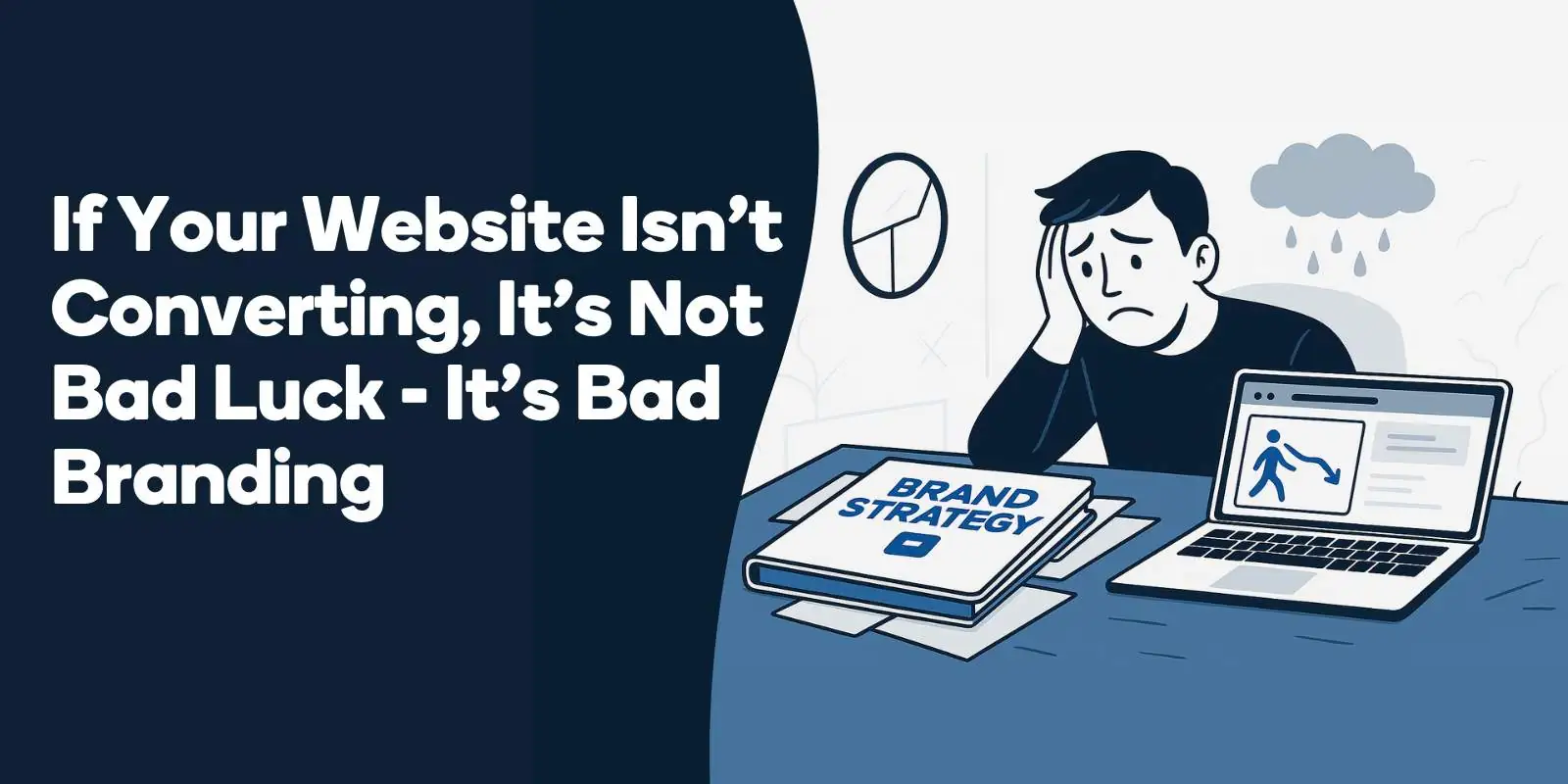As website owners and SEO professionals, it’s vital to understand the impact of E-E-A-T on your site owners’ search rankings and online visibility. Are you ready to explore the essence of E-E-A-T and learn practical steps to enhance your website’s E-E-A-T score? Let’s dive in!
The Essence of E-E-A-T and Its Impact on Google Rankings
In a world where search engine rankings can make or break a website’s success, understanding the concept of E-E-A-T is crucial. E-E-A-T is an acronym which stands for Experience, Expertise, Authoritativeness and Trustworthiness.
These are the four essential qualities of content in search engine optimization. Google evaluates these factors to determine the quality of a website and its content, ultimately influencing its search rankings.
Incorporating E-E-A-T into your SEO strategy is essential for ensuring your website’s content is deemed high-quality by Google’s search algorithm.
By focusing on E-E-A-T, you can create content that showcases your expertise, builds authority, and generates trust among users and search engines alike. This, in turn, can give your website a competitive advantage in search results, leading to increased traffic and online visibility.
Experience
The “Experience” component of E-E-A-T refers to the content creator’s direct or real-world knowledge of a topic. Experience plays a critical role in building a website’s expertise, authority, and trustworthiness, which are fundamental according to Google’s search quality evaluator guidelines.
User experience is another essential element of E-E-A-T. Ensuring that your content is engaging, informative, and relevant to your audience’s needs and interests is crucial for maintaining a strong online presence.
By creating content that resonates with your audience, you can build a loyal following and improve your website’s E-E-A-T score.
Expertise
Expertise refers to having substantial real-world experience or formal education in a particular field. Google rewards content that is created by individuals possessing the necessary credentials or qualifications to produce it.
In the realm of E-E-A-T, expertise is indicative of a high level of knowledge or skill in a specific area. It is primarily assessed in terms of the content, not the website or organizational structure.
Collaborating with experts in your field is essential for demonstrating your expertise and improving your E-E-A-T score. By featuring experts on your website’s About, Team, or Contributors pages, you establish credibility and trustworthiness among users and search engines alike.
Ensuring your content is factually accurate and well-researched also contributes to your website’s expertise and overall E-E-A-T score.
Authoritativeness
Authoritativeness goes beyond expertise, positioning you as the definitive source of information on a subject. Establishing authority in your field is crucial for increasing your website’s E-E-A-T score and improving its search rankings.
Google quality raters are instructed to evaluate the authoritativeness of the site owner or content creator, the content itself, and the website when assessing a website’s E-E-A-T score. Independent sources, such as Wikipedia, can serve as useful references when assessing a website’s authority.
By demonstrating your authority in your field, you can build trust among users and search engines, ultimately resulting in better search rankings and increased website traffic.
To establish authority, it’s essential to create high-quality content that attracts backlinks and mentions from other authoritative sources in your industry.
Networking with industry experts and forming strategic partnerships can also help boost your website’s E-E-A-T score and improve its search rankings.
Trustworthiness
Trustworthiness is a vital component of E-E-A-T, as it assesses the legitimacy, transparency, and accuracy of a website and its content. Building trust among users and search engines is essential for improving your website’s E-E-A-T score and overall search ranking.
To establish trustworthiness, it’s crucial to be transparent about your website’s purpose, ownership, and content creation processes.
Providing clear author information, ensuring the security of online transactions, and displaying customer reviews are all ways to reinforce trust signals and improve your website’s E-E-A-T score.
By focusing on trustworthiness, you can create a strong foundation for your website’s online presence and search engine success.
Evaluating E-E-A-T: Google’s Approach
Google assesses E-E-A-T through a combination of methods, including Quality Rating Guidelines, algorithmic evaluation, and user signals.
Understanding how Google evaluates E-E-A-T is crucial for optimizing your website and content to meet their criteria and improve your search rankings.
Quality Rater Guidelines
Google’s Quality Rating Guidelines provide an in-depth explanation of what Google considers “high quality” in terms of content and websites.
These guidelines are used to evaluate the relevance, accuracy, and usefulness of online content, with E-A-T being referenced 130 times, highlighting its importance in assessing website quality.
Quality Raters are instructed to use Wikipedia as a reference when evaluating a website’s reputation, making it an essential resource for building trust and authority.
By adhering to the Quality Rating Guidelines and focusing on the E-E-A-T criteria, you can create content that meets Google’s standards and improves your website’s search rankings.
Algorithmic Evaluation
Google’s algorithms play a significant role in determining search rankings, and they take E-E-A-T into account when evaluating websites and content.
Algorithmic evaluation involves making adjustments to the algorithm that reflect tangible indicators of E-E-A-T, which can help improve a website’s online presence and provide a competitive advantage.
As Google continues to update its algorithms, the importance of E-E-A-T in search rankings is likely to increase. Staying informed about the latest algorithm updates and industry trends is crucial for optimizing your website and content to meet Google’s ever-evolving standards.
User Signals
User signals refer to the behaviors users exhibit when engaging with a website, such as click-through rates, time spent on a page, bounce rates, and social media shares.
These signals can be used to assess the quality of user generated content and the overall trustworthiness of a website, which can have a considerable impact on a website’s position in search engine rankings.
By optimizing your content for user signals, you can enhance your website’s E-E-A-T score and improve its search rankings.
Ensuring that your content is engaging, informative, and relevant to your audience is crucial for generating positive user signals and creating a strong online presence.
YMYL: High-Stakes Content and E-E-A-T
“Your Money or Your Life” (YMYL) content covers topics that can have tangible impacts on users’ lives, such as finance, health, and safety.
Due to the potential consequences of misinformation in these areas, Google places a higher emphasis on E-E-A-T for websites dealing with YMYL topics.
Understanding the connection between YMYL, content marketing and E-E-A-T is crucial for creating high-quality content in these high-stakes areas.
Defining YMYL Content
YMYL content refers to topics and pages that could have a significant impact on a person’s future wellbeing, financial security, or safety. Examples of YMYL content include information on parenting, housing, schools, employment, fitness, nutrition, and weight loss.
When dealing with YMYL topics, it’s essential to ensure your content is accurate, reliable, and trustworthy to meet Google’s elevated E-E-A-T standards.
Elevated E-E-A-T Standards for YMYL
When it comes to websites focusing on “Your Money or Your Life” (YMYL) topics, the role of Expertise, Everyday Expertise, Authoritativeness, and Trustworthiness (E-E-A-T) becomes all the more crucial.
Google stipulates rigorous standards for YMYL pages, demanding the apex of E-E-A-T to safeguard users from potential adversities. This indicates that content creators and website owners handling YMYL topics need to exercise extreme diligence in aligning with the E-E-A-T guidelines.
Meeting Google’s trust prerequisites for YMYL content involves ensuring that it’s crafted by both certified experts and everyday experts who hold relatable, real-world experience.
This doubles down on the notion of Expertise and Everyday Expertise, broadening the spectrum of trustworthy information sources. In addition to this, websites addressing YMYL topics are obligated to deliver transparent and accurate information, reinforcing the aspect of Authoritativeness.

Award-Winning
Sales Funnel & Website Expert
Ready for Revenue – Not Just “Traffic”?
- Websites that Work: Clean, fast, built to convert – no design fluff.
- Funnels that Sell for You: Step-by-step paths that turn clicks into paying customers.
- SEO That Hunts Buyers: Show up exactly when prospects reach for their wallets.
On the Trustworthiness front, maintaining high-level security measures and exceptional customer service becomes non-negotiable. By upholding these vital facets of E-E-A-T, websites can achieve a reliable presence, particularly when dealing with YMYL content.
YMYL SEO Best Practices
Optimizing YMYL content for E-E-A-T involves implementing specific SEO strategies tailored to these high-stakes topics. By focusing on the principles of Expertise, Authoritativeness, and Trustworthiness, you can improve your website’s E-E-A-T score and ensure users find reliable, accurate information on YMYL subjects.
Some recommended strategies for YMYL SEO include ensuring content quality and relevance, demonstrating expertise, establishing authority, and reinforcing trust signals.
By adhering to these best practices, you can create YMYL content that meets Google’s elevated E-E-A-T standards and improves your website’s search rankings.
Enhancing E-E-A-T: Practical Steps for Improvement
Now that we’ve explored the importance of E-E-A-T and its impact on search rankings, it’s time to put theory into practice.
In this section, we will provide actionable tips and strategies for optimizing E-E-A-T on your website, from improving content quality and relevance to showcasing expertise and building authority.
Content Quality and Relevance
Ensuring that your web page and content is of high quality, accurate, and relevant to your audience is a crucial aspect of E-E-A-T. By focusing on content quality and relevance, you can build your website’s expertise, authority, and trustworthiness, ultimately leading to better search rankings and increased online visibility.
To enhance content quality and relevance, consider conducting thorough research and referencing reliable sources.
Additionally, make sure your content is well-structured, well-written, and up-to-date to meet Google’s search quality guidelines. By adhering to these best practices, you can create content that meets the E-E-A-T criteria and improves your website’s search rankings.
Expertise Showcasing
Highlighting the expertise of your content creators and contributors is essential for establishing credibility and trustworthiness among users and search engines.
Demonstrating expertise can be achieved by providing comprehensive data, referencing reliable sources everyday expertise, and employing authoritative language.
To showcase expertise, consider including author bios and other credentials on your website. This can help users better understand the qualifications and experience of the individuals behind your content, ultimately boosting your website’s E-E-A-T score and search rankings.
Building Authority
Establishing authority in your field is crucial for improving your website’s E-E-A-T score and search rankings. Authority can be built through backlinks positive reviews, mentions, and strategic collaborations with industry figures.
To build authority, focus on producing high-quality content that attracts backlinks and mentions from other authoritative sites and sources in your industry.
Networking with industry experts and forming strategic partnerships can also help boost your website’s E-E-A-T score and improve its search rankings.
Trust Signals
Trust signals, such as transparency, security, and user reviews, are essential for building trustworthiness and authoritativeness in the eyes of users and search engines.
By strengthening these trust signals, you can improve your website’s E-E-A-T score and overall search ranking.
To reinforce trust signals, ensure that your website is transparent about its purpose, ownership, and content creation processes.
Providing clear author information, ensuring the security of online transactions, and displaying customer reviews are all ways to strengthen trust signals and improve your website’s E-E-A-T score.
The Future of E-E-A-T and SEO
As the digital landscape continues to evolve, so too will the importance of E-E-A-T in search engine optimization. In this section, we’ll explore potential future developments in E-E-A-T, its impact on SEO, and how to adapt your strategies to stay ahead of the curve.
Algorithm Updates
Google’s algorithms are always evolving, with the goal of providing users with the most relevant and accurate search results. As these algorithms become more sophisticated, their focus on E-E-A-T is likely to increase.
Staying informed about the latest algorithm updates and industry trends is essential for optimizing your website and content to meet Google’s ever-evolving standards.
Recent and upcoming algorithm updates, such as the Link Spam Update, Product Reviews Update, Broad Core Update, MUM, and Page Experience Update, all demonstrate Google’s ongoing commitment to prioritizing E-E-A-T in search rankings.
By staying up-to-date with these updates and their implications for E-E-A-T evaluation, you can ensure your website remains competitive in the rapidly changing world of SEO.
Emerging Technologies
New technologies, such as AI and voice search, have the potential to significantly impact E-E-A-T evaluation and the overall field of SEO. As these technologies become more widespread, they may offer new ways to assess content quality, expertise, authoritativeness, and trustworthiness.
The impact of emerging technologies on E-E-A-T assessment and SEO strategies should not be underestimated.
By staying informed about the latest technological advancements and their potential implications for E-E-A-T evaluation, you can ensure your website remains on the cutting edge of SEO and continues to thrive in the ever-evolving digital landscape.
Adapting SEO Strategies
As the importance of E-E-A-T continues to grow, it’s essential for website owners and SEO professionals to adapt their strategies accordingly.
By focusing on improving content quality, showcasing expertise, building authority, and reinforcing trust signals, you can ensure your website remains competitive in the dynamic world of search engine optimization.
Staying informed about the latest algorithm updates, industry trends, and emerging technologies is crucial for optimizing your website and content to meet Google’s ever-evolving standards. By continually analyzing data and making adjustments to your SEO tactics, you can stay ahead of E-E-A-T trends and maintain strong search rankings in the future.
Frequently Asked Questions
What is Google E-A-T algorithm?
E-A-T stands for Expertise, Authoritativeness, and Trustworthiness. It is not an algorithm, but rather a set of guidelines used by Google’s human quality raters to assess the quality of the content on websites.
These guidelines have become a major focus in SEO (Search Engine Optimization) because they reflect what Google is looking for in high-quality content.
- Expertise : The content should be created by an expert or enthusiast who is knowledgeable in the specific subject matter. This ensures that the content is accurate and reliable.
- Authoritativeness : The website or the content creator should be recognized as an authority on the subject. This can be demonstrated through things like credentials, awards, or recognition by peers.
- Trustworthiness : The website and the content it hosts should be trustworthy. This can be reflected in a secure and transparent website, accurate and honest content, and a positive reputation.
What are Google ranking factors for E-A-T?
While Google has not provided a specific list of ranking factors for E-A-T, it does provide general guidance in its Quality Rater Guidelines.
Here’s some factors that could potentially influence E-A-T:
- Quality and depth of content : Google prioritizes content that provides comprehensive, accurate, and useful information on a topic.
- Reputation : Both the reputation of the website and the individual content creators can impact E-A-T. This can be influenced by things like reviews, ratings, and references or citations from other authoritative sources.
- Author credentials : The expertise of the content creators can be a factor. This can be demonstrated through things like professional experience, qualifications, or other evidence of subject matter expertise.
- Site security : A secure website (HTTPS) can contribute to the trustworthiness factor of E-A-T.
- Transparency : Providing clear information about who is responsible for the website and who authored the content can contribute to trustworthiness.
What ranking algorithm does Google use?
Google uses a complex algorithm called PageRank to rank web pages in its search results. PageRank evaluates the quality and quantity of links to a webpage to determine a rough estimate of how important the website is. The underlying assumption is that more important websites are likely to receive more links from other websites.
However, it’s important to note that PageRank is just one part of Google’s overall ranking algorithm. Google’s algorithm takes into account hundreds of different factors, including relevancy of the content to the search query, the E-A-T principles, the user experience on the website, mobile-friendliness, page speed, and many others.
What three SEO elements does the Google E-A-T rating consider?
The Google E-A-T rating considers the following three elements:
- Expertise: This involves the knowledge and skill of the content creator in the particular subject matter. SEO tactics to demonstrate expertise may include creating high-quality content that demonstrates knowledge and skill, using author bylines with credentials, and keeping content up-to-date and accurate.
- Authoritativeness : This involves the recognition of the content creator or the website as an authority on the subject matter. SEO tactics to build authority may include earning high-quality backlinks, establishing a strong online reputation, and gaining recognition from peers or industry leaders.
- Trustworthiness : This involves the honesty and transparency of the website and its content. SEO tactics to build trust may include maintaining a secure website (HTTPS), providing clear and honest content, having a clear and easy-to-find privacy policy and contact information, and building a positive online reputation.
What is Google’s E-A-T signal?
Google’s E-A-T signal isn’t a specific signal in the same way that other ranking factors are. Instead, it refers to a collection of signals that Google uses to evaluate the Expertise, Authoritativeness, and Trustworthiness of a website or a piece of content.
These signals can include things like the quality and depth of the content, the reputation of the website or author, the security of the website, and other factors that contribute to E-A-T.
It’s also worth noting that Google’s algorithms try to understand E-A-T signals in a number of ways. For instance, they look for signals about the author’s expertise on the topic, the overall reputation of the website and author, and whether the website has clear and helpful information about who is responsible for it.
How do I implement Google E-A-T?
Implementing Google E-A-T involves a number of steps, and these will vary depending on the specifics of your website and industry. However, here are some general steps to consider:
- Produce High-Quality Content : Content should be well-researched, accurate, and provide value to users. It should demonstrate your knowledge and expertise in your field.
- Highlight Expertise : Make sure it’s clear who is creating your content, and showcase their expertise and credentials. This could be done through author bylines, bio pages, or similar.
- Build Your Reputation : Develop a strong online presence and reputation. This could involve gaining positive reviews, earning backlinks from reputable sites, and engaging with your industry or community.
- Secure Your Site : Use HTTPS and ensure your site is secure. This not only protects your users, but it also contributes to your site’s trustworthiness.
- Be Transparent : Make sure it’s easy for users to find information about your business, including contact information. Be clear about who is responsible for the content on the site.
- Stay Up-to-Date : Regularly update and review your content to ensure it remains accurate and current.
Remember, E-A-T is about demonstrating your expertise, authority, and trustworthiness to both users and Google. It’s not something that can be achieved overnight, but with consistent effort, it can significantly improve your site’s SEO.
Conclusion
In conclusion, understanding and optimizing E-E-A-T is essential for website owners and SEO professionals seeking to improve their search rankings and online visibility. By focusing on the principles of Experience, Expertise, Authoritativeness, and Trustworthiness, you can create high-quality content that meets Google’s standards and provides value to your audience.
As the digital landscape continues to evolve, staying informed about the latest algorithm updates, industry trends, and emerging technologies will be crucial for maintaining a strong online presence and achieving SEO success.










